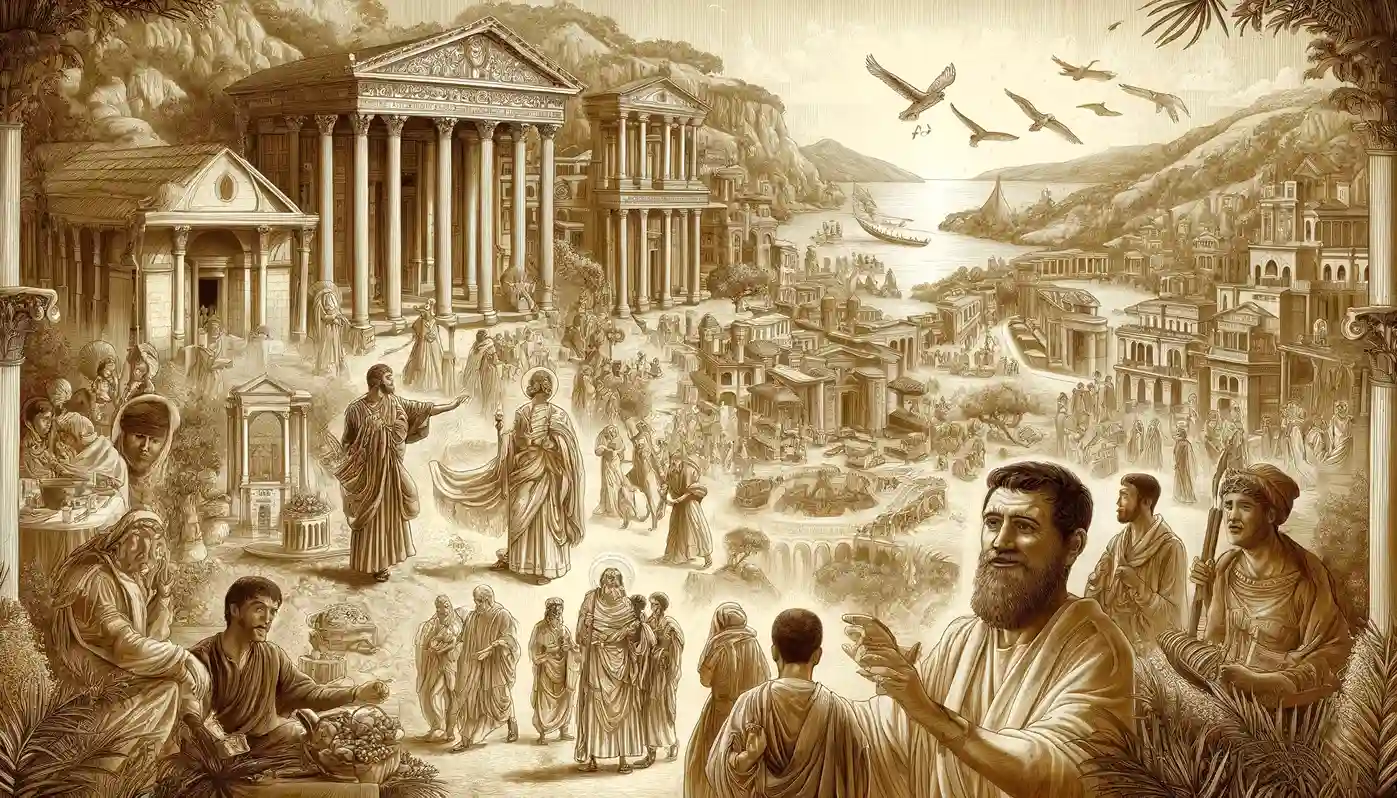Paul’s missionary journeys, spanning from Antioch to cities like Ephesus, Philippi, Athens, and Corinth, were pivotal in the spread of Christianity, marked by his dedication to preaching the Gospel, performing miracles, and establishing strong early Christian communities despite numerous challenges and opposition.
John the Apostle, also known as John the Evangelist, is one of the most influential figures in the Christian New Testament, recognized for his profound contributions through several writings including the Gospel of John, three Epistles, and the Book of Revelation; he was one of the key figures among Jesus’ disciples, part of the inner circle, and privileged to witness significant events such as the Transfiguration and the Agony in Gethsemane. Traditionally attributed with deep theological insights, his works emphasize themes like divine love and truth, and his life, marked by close proximity to Jesus, exile on Patmos, and a natural death in Ephesus, reflects a blend of theological depth, apostolic authority, and visionary insight, deeply influencing Christian thought and doctrine across denominations.
The Book of Hosea offers profound insights into the complexities of God’s character and His expectations for a faithful, loving relationship with His people, making it a critical text for understanding biblical prophecy and theology.



